Kelli - Finds
Recipe for Potato Farl
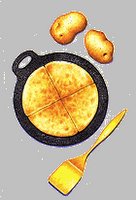
2 lb/ 1 kg/ 2 cups mashed potatoes
4 oz/ 125 g/ 1 cup plain flour
2 tbsp butter
salt
Melt the butter and mix into the potatoes with the salt. Work in the flour quickly but thoroughly and knead lightly. Divide in two and roll out each half on a floured board to form a circle about the size of a large dinner plate. Cut in quarters (farls) and cook for about 3 minutes on each side in a heavy frying pan in a little bacon fat.
----
Song about a place in Ireland:
"Limerick is Beautiful"
Source: Irish Street Ballads by Colm O'Lochlainn
Oh, then, Limerick is beautiful as ev'rybody knows,
The River Shannon full of fish beside that city flows.
'Tis not the river nor the fish that preys upon my mind
Nor with the town of Limerick have I any fault to find.
Oh, the girl I love is beautiful and fairer than the dawn,
She lives in Garryowen and she's called the Colleen Bawn.
But proudly as the river flows beside that fair citie,
As proudly and without a word that Colleen goes by me.
Oh then, if I was the Emperor of Russia to command
If I was Julius Caesar or Lord Lieutenant of the land.
I'd give my fleet, my golden store I'd give up my armie
The horse, the rifle and the foot and the Royal Artillerie.
I'd give my fleet of sailing ships that range the briny seas
I'd give the crown from off my head, my people on their knees
A beggar I would go to bed and proudly raise at dawn
If by my side, all for a bride, I found the Colleen Bawn.
---
County Sligo
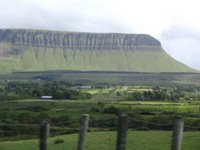
County Galway

County Clare
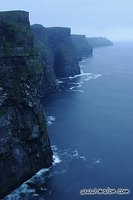
---
Irish Art Depicting Traditional Topics
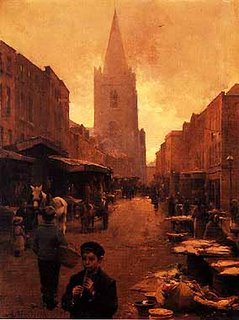
Walter Osborne - "St. Patrick's Close"
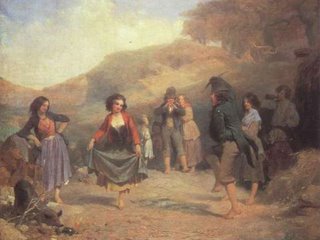
Trevor Fowler - "Children Dancing at Crossroads"

Darren Paul - "The Flute"
